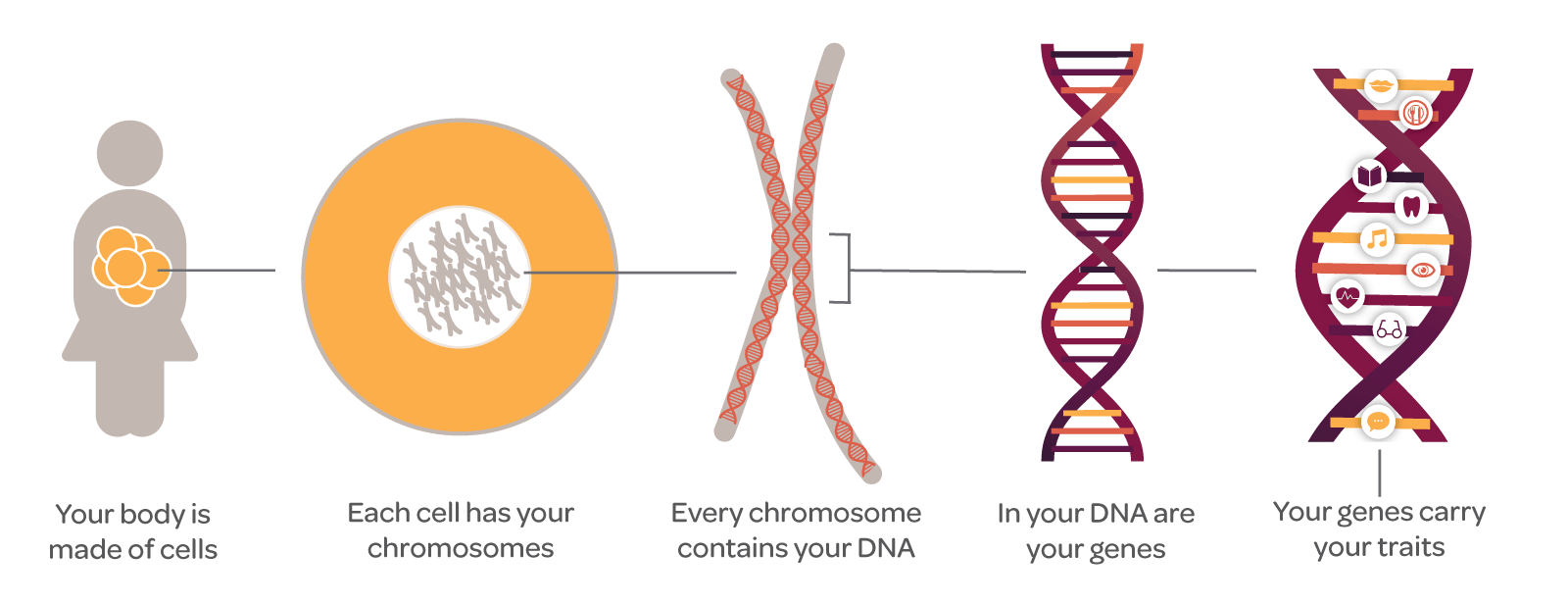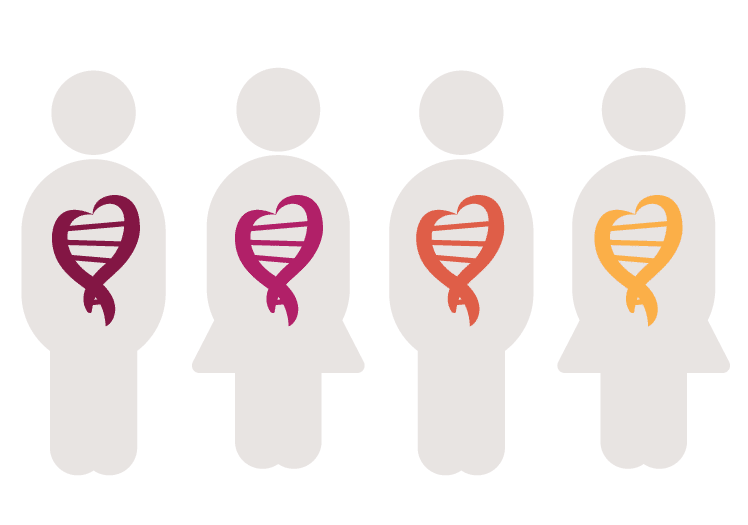Genetics 101
Genetics 101
Learn more about your genetics
What exactly are my genetics?
Simply put, genetics is the study of your genes. Genes make up your DNA, or the most basic unit of your genetic material. Different genes are what give a person unique and specific traits - like eye color, hair color, etc. Humans have approximately 24,000 different types of genes.
Your genes are packaged up in chromosomes.
Chromosomes are like the carriers for your DNA, containing hundreds to thousands of genes and stored in each of your cells. Humans have 23 pairs of chromosomes.


How do our genes determine our traits?
Your genes provide the “codes” or “instructions” for the production of certain proteins, which make up the tissues in our body. These proteins perform all the functions in the body that allow us to develop, and also, maintain health as we age.
In order for your DNA instructions to get turned into proteins, they must first be converted into another molecule called RNA. This step is necessary because the machinery in your cells that make proteins cannot actually read the DNA instructions, so they must be rewritten as RNA instructions first, before making proteins. You can learn more about RNA, and its role in the KRAS-variant on our Genetics 102 page.

What are genetic variants or mutations?
Differences in your DNA are known as variants or mutations. These differences can result in your cells not functioning the way they should in your body. Proteins are the growth drivers or "brains" that tell our cells how to behave. A variant or mutation in the DNA can result in the abnormal production of the proteins. Cancer is complex, but it is usually a combination of these protein abnormalities that lead to cells becoming cancerous.

The KRAS-variant is a genetic variant found in your DNA
So we now know that variants are small changes that can occur in your DNA.
These genetic differences can either be inherited or acquired. Inherited DNA differences, also known as germline variants, are passed down from your biological parent, and are in every cell in your body when you are born. Acquired DNA differences, also called somatic gene mutations, occur after you are born and can result from environmental or lifestyle factors such as smoking, radiation, UV exposure, diet, etc.
Since we know that variants or mutations in your DNA play a part in increasing your risk for diseases, such as cancer, it’s important to understand how inherited genetic variants, like the KRAS-variant, increase the risk for cancer. We’ll talk more about this in Genetics 102.

Did you know?

DNA is your body’s textbook with all your genetic information.
DNA is the textbook in every single one of your cells that tells you how to be who you are and tells your cells to do the tasks they need to do.

DNA is unique to every individual.
*Fun Fact: as is widely known, identical twins, come from the same fertilized egg, which causes them to carry the same DNA. Differences between identical twins are attributed to environmental factors.

DNA is inherited, or passed from parent to offspring.
You receive one copy of DNA from your biological mother and one copy from your biological father.



